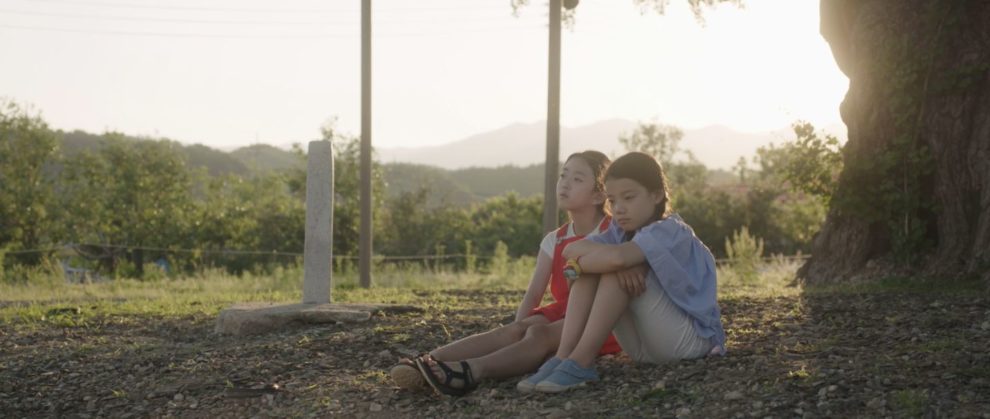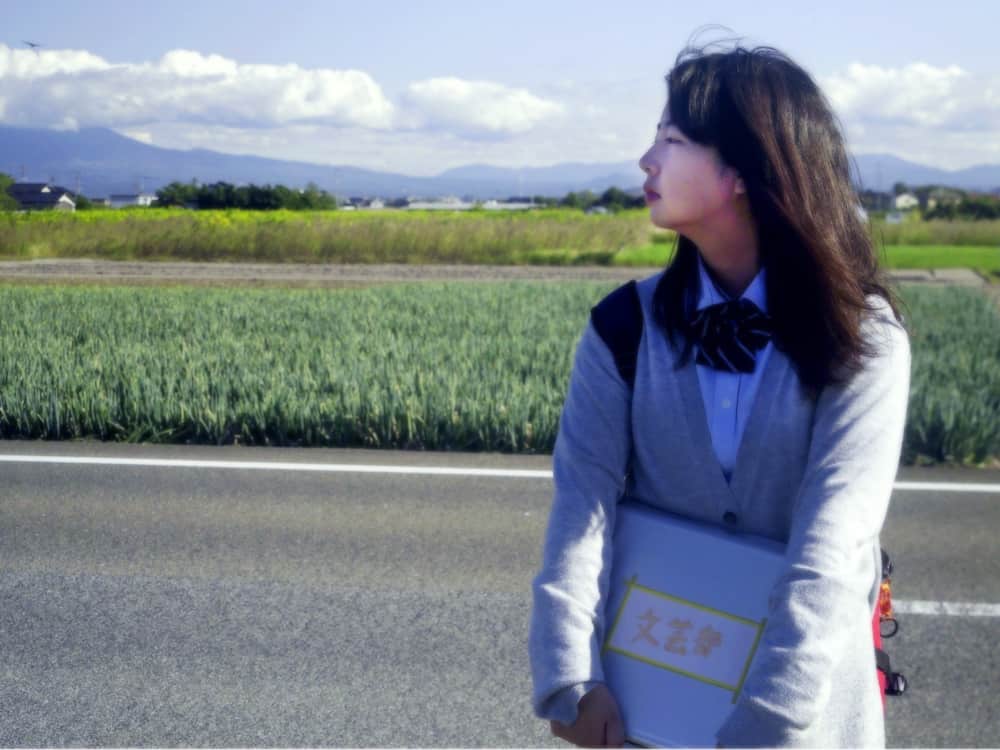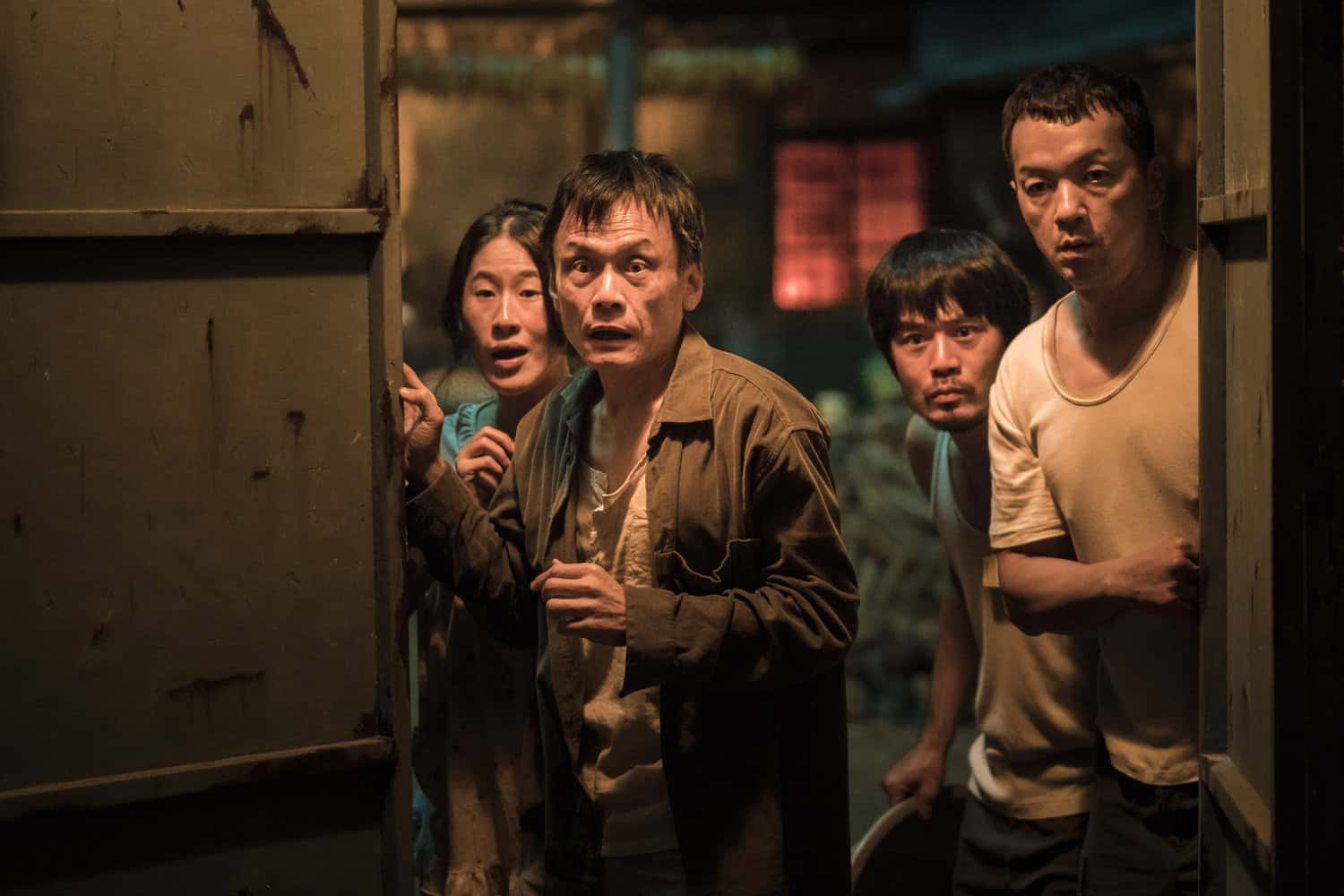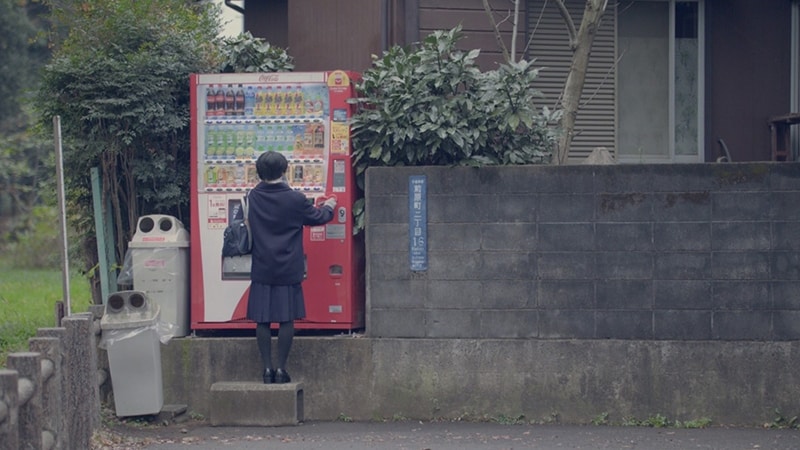Cinema is often said to give voice to the voiceless. Debutant director Kim Jin-yu attempts to do just that with his feature film “Bori”, which won the DKG Award (an award it shared with “Sub-Zero Wind”) at Busan International Film Festival when it screened there in 2018.
“Bori” is screening at London Korean Film Festival

Bori lives with her parents and little brother, the only person who can speak and hear in an otherwise deaf and mute family. The family is seemingly happy and well-loved in the community, particularly little Bori, who acts as the voice of the family. Bori, however, feels that, as the odd one out, she is slightly less loved by her parents than her brother and feels neglected. Every day, on her way to school, along with her best friend Eun-jeong, Bori makes but one wish at the temple: to be audibly impaired just like her family. Her friend's idea of listening to loud rock music doesn't seem to work either. One day, Bori sees an old female scuba diver talk about how she cannot hear well after years of diving underwater and she decides to take matters into her own hands.
Kim Jin-yu directs this sweet slice-of-life story from his own script, in a form that in no way uses the family's disability as a tragic element or exploits it. Instead, it focuses on the young girl's inner struggles to fit in her own family. Do her parents love her any less than they do her brother and will her being deaf make any difference to that? These are two questions Bori constantly tussles with and while there are no definitive answers, they make all the difference to the mind of a young child. It is easy to see that her parents love her just as much, and just need to take more care of her brother Jeong-woo because he is at a disadvantage due to his impairment, and the worry they show when she gets separated at the fair, and during her heart-to-heart conversations with her father while fishing are proof to the fact. For the girl with little to no foresight however, it is enough to push her to contemplating drastic steps.
Kim Jin-yu draws from his own experiences as a CODA (Children of Deaf Adults), having grown up with a deaf mother, to showcase issues that people with such disabilities often go through on a daily basis. It is to his immense credit that he treats such a subject with a certain delicacy that reminds of someone like Yoon Ga-eun's or Hirokazu Koreeda's works. Within it all, he also includes some lessons about fitting in and finding one's own place in this world and accepting yourself for what you are. His depiction of the purity of childhood friendships that accepts one another for what they are and the trust that goes each way with it is commendable too. To some, the narrative's pacing might seem unhurried, but the excellent cinematography that shows off the seaside town's natural beauty should be more than fetching. The family's world may be soundless, but Choi Man-sun and Choi Yong-chul's music fills it with soothing guitar melodies which suit the story perfectly.
To rest the entire feature on the shoulders of an actress so young is a big ask on Kim's part, but Kim Ah-song, who was selected after auditioning around 200 people, is well up for the task. Productions featuring child lead actors do sometimes tend to overplay their cuteness card to compensate for the lack of experience, but Kim manages to mix her cute innocence with good acting skills too. The confusion with which she wrestles later in the story, as she contemplates letting her parents in on her secret and the conviction with which she confronts the two discriminating shop-owners are just two example of her decent abilities.

Her wide, radiant smile, enough to light up a room, is not dissimilar to that of Kwak Jin-seok, who plays her father. The scenes she shares with the actor, who often works as a stuntman, are among some of the feature's best. Kwak's real-life wife Heo Ji-na plays the mother, while the even younger Lee Rin-ha plays Jeong-woo in an equally effective manner. The way he manages to evoke the audience's sentiments without saying a word in the scene where he describes his desire to talk to his friends is fascinating. In fact, the sign language performance from all four actors deserves praise.
With “Bori”, Kim Jin-yu manages to joins the ranks of directors like Kim Go-eun (“The World of Us”) and Yoon Dan-bi (“Moving On”) by making a debut production that does not rest on its child actors' likability factor and instead uses their strengths to make a truly engrossing, well-acted and well-produced film grounded in realism and child-like innocence.















